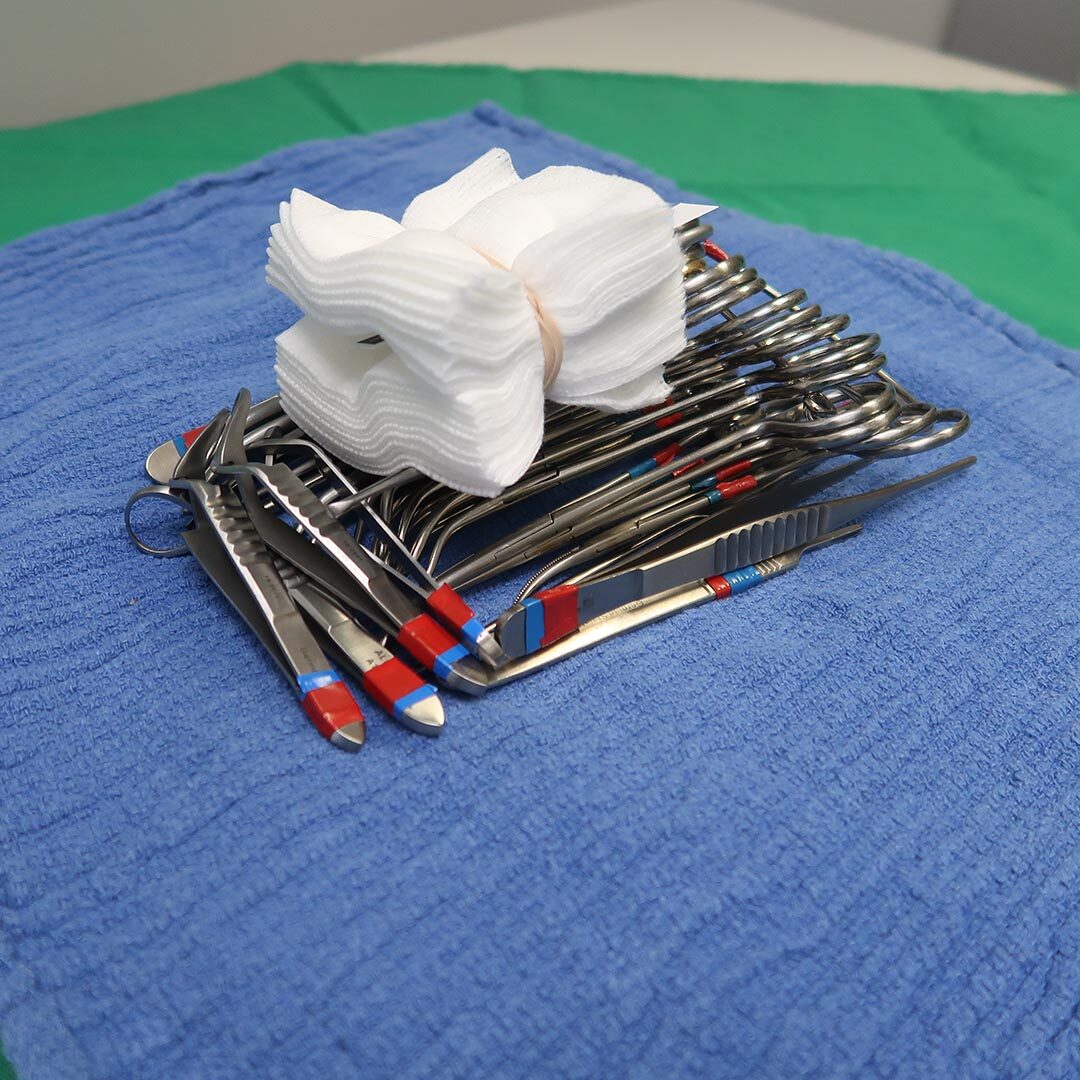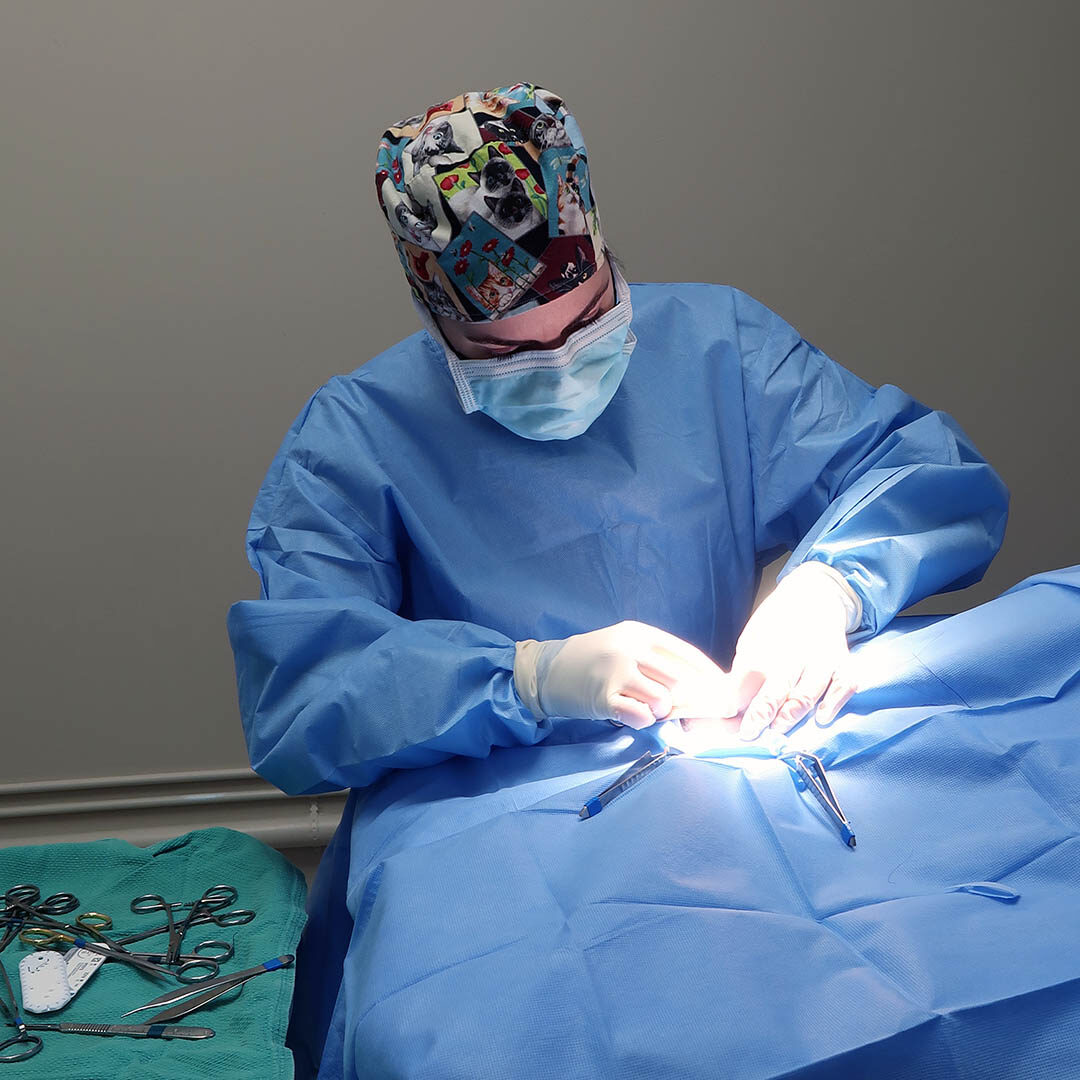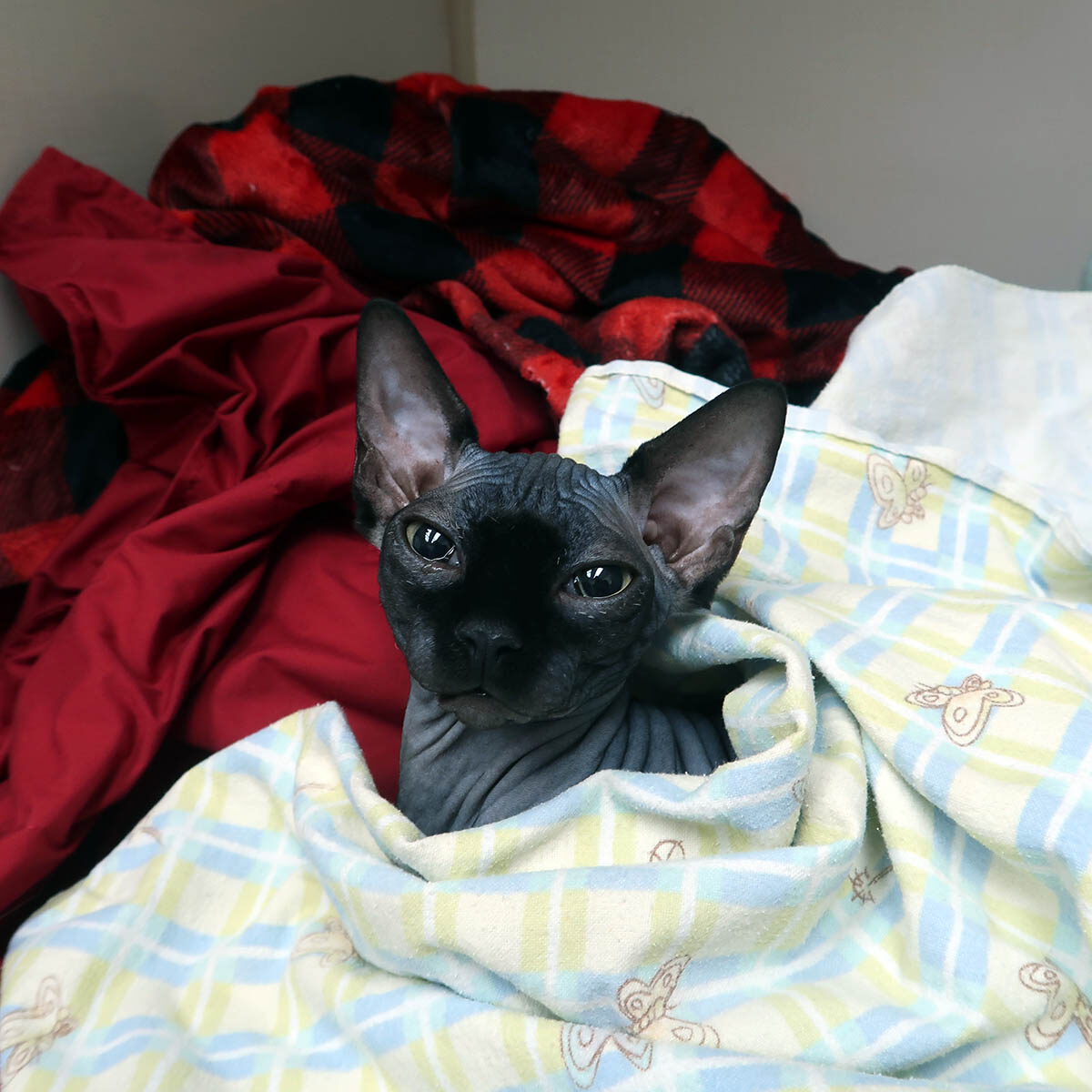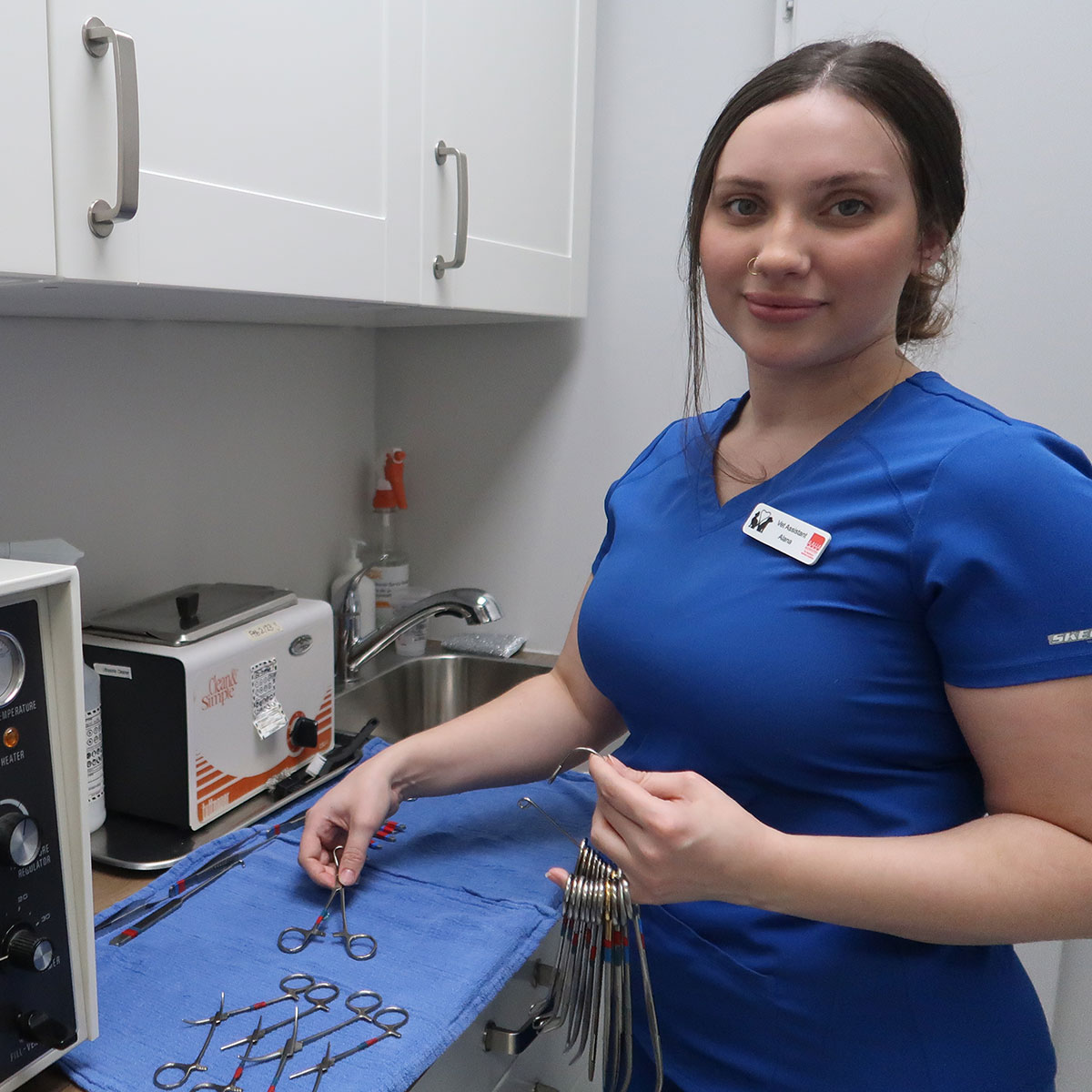Pet Surgery Services in Toronto, Ontario
We take the greatest care to keep your pet comfortable and safe while they are with us for their surgical procedure here in Toronto. Westway Animal Clinic abides by strict AAHA guidelines to ensure every pet surgery is performed smoothly and with minimal stress and discomfort for your animal family member. Our veterinarians are able to provide many different surgeries, from routine spays and neuters to more advanced soft-tissue procedures. We offer some on-site cat and dog orthopedic surgeries with a traveling surgeon. For surgical cases that may require a specialist, we can connect patients to a trusted board-certified veterinary surgeon to address their specific needs.
Your pet is in skilled, compassionate hands with our surgical team. If you have questions related to your pet’s recent or upcoming surgery, please contact us at (416) 243-3200.
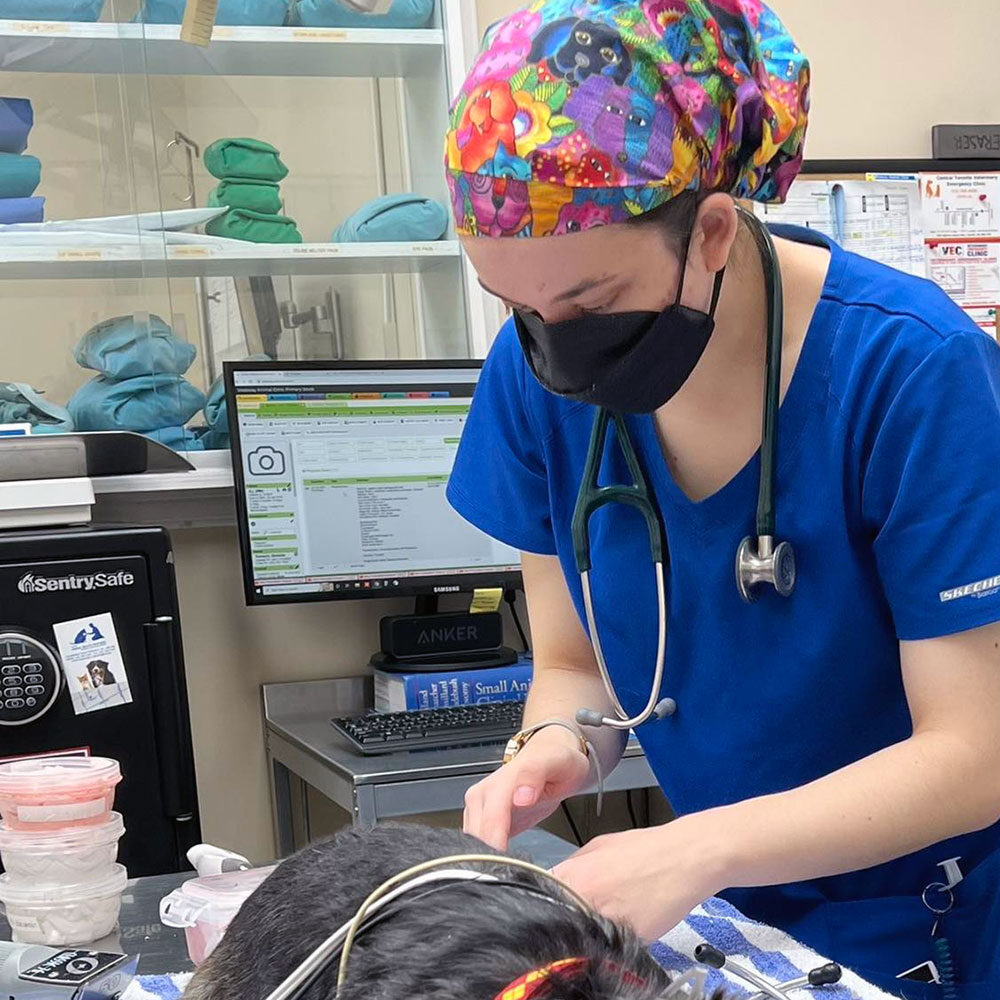
Anesthesia Safety and Pain Management for Your Pet
At Westway Animal Clinic, we take every precaution to make anesthesia as safe as possible for your pet. You can be assured that your pet will be monitored diligently throughout their surgery by their veterinarian and a team of technicians, along with our state-of-the-art monitoring equipment.
Before Surgery
A pre-anesthetic examination and blood work are mandatory before every pet surgery. These steps allow us to evaluate your pet’s health to see if there will be any increased risks and potential health complications while they are under anesthesia. We check blood cell counts, platelets, and the condition of various major organs to make sure your pet is in good health and able to safely undergo surgery.
During Surgery
Your pet is monitored constantly throughout their surgical procedure by a highly trained registered veterinary technician (RVT). They will keep a close eye on your pet’s vitals including oxygenation, blood pressure, heart rate, and respiration rate to make sure all levels are normal. We will also give your pet intravenous fluids during their surgery to keep their vital organs hydrated, maintain their blood pressure, and help to flush out any anesthetic drugs once the surgery is complete.
If necessary, we may administer pain control to your pet during their procedure. We offer various types of analgesic, including IV drip and injection. We may also send you and your pet home with oral pain medication to make their recovery more comfortable. The amount and types of pain medication we recommend vary depending on the pet and the type of surgery.
After Surgery
Once we conclude your pet’s surgery, we will treat the surgical site with cold laser therapy to enhance pain relief, reduce swelling, and increase healing. If your pet undergoes a tumor removal surgery, we will not be able to use laser therapy at the incision site.
Pet Surgeries We Offer in Toronto
Our veterinarians are skilled in performing a variety of soft-tissue surgeries for dogs and cats. Spay and neuter procedures are routine procedures we recommend for a majority of our patients, with pets generally able to return home the same day after having surgery.
Other surgeries we provide include:
- Mass/tumor removals (fatty lumps, cysts, malignant tumors)
- Bladder stone removal surgery
- Surgery to treat serious and frequent ear infections
- Eye surgery (entropion, cherry eye) to improve or restore vision
- Abdominal exploratory surgery
The Benefits of Spay and Neuter Surgeries
Spaying and neutering dogs and cats is the best way to prevent unwanted pregnancies and litters. This can help to relieve the strain on animal shelters by reducing the number of strays and allowing more shelter animals to find homes. But spay and neuter procedures can also be beneficial to the health and happiness of individual pets, by limiting or preventing the following conditions and behaviors and possibly extending their life:
- Bacterial uterine infections (females)
- Ovarian, uterine, and mammary gland tumors (females)
- Prostate and testicular cancer (males)
- Aggressiveness (males)
- Urine marking/spraying (males)
- Vocalizing, pacing, roaming, and mounting (males and females)

